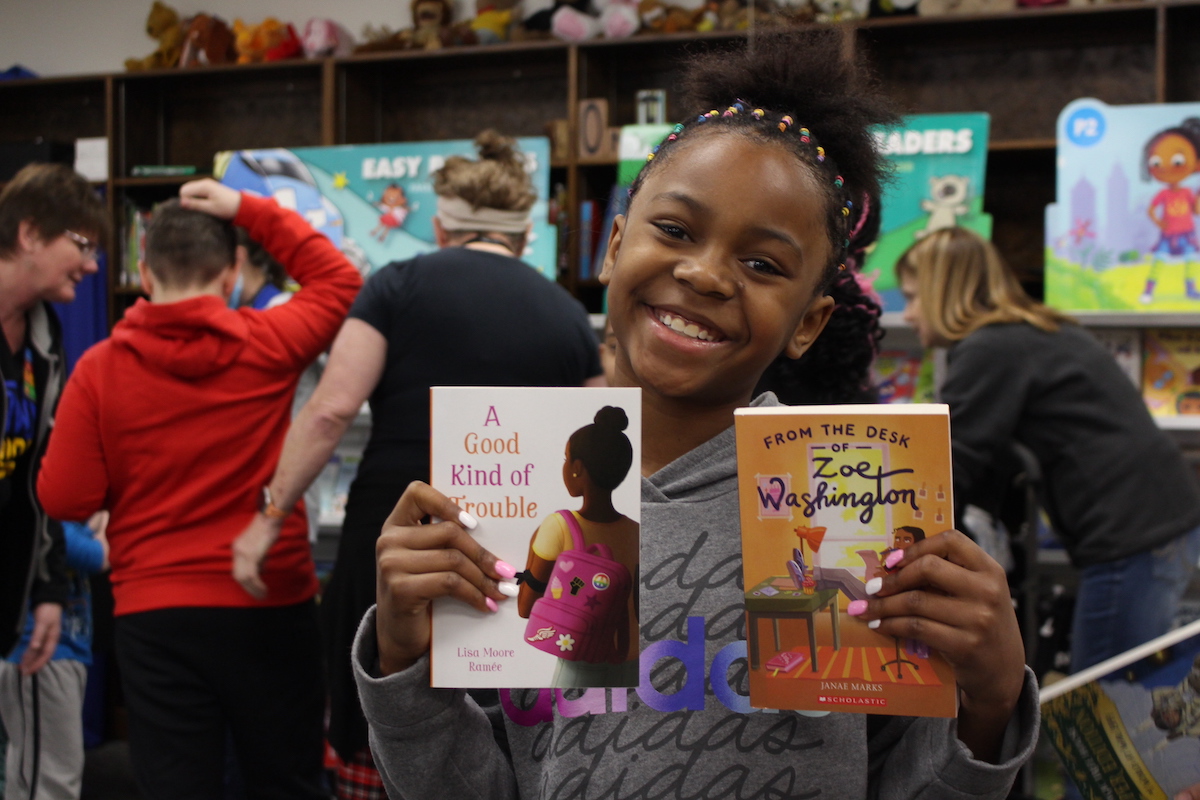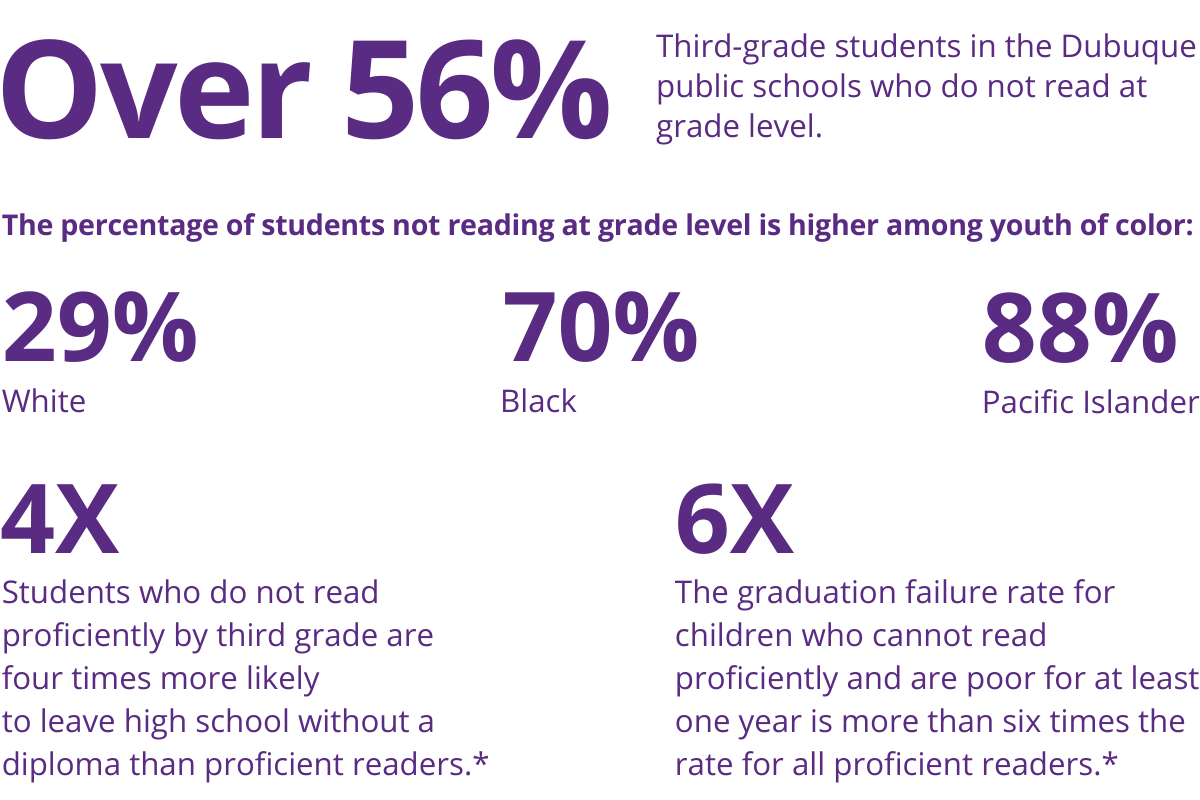Responding to Kids in Crisis

Children are struggling in the wake of the pandemic. Supporting them takes a coordinated, community effort.
In the past year, Kaitlin Schmidt has noticed children behaving differently when they arrive at St. Mark Youth Enrichment. The nonprofit’s director of strategic resources says that many children seem unsure how to interact with peers and deal with social-emotional needs. On top of those issues, many struggle academically.
More than two years after the pandemic began, the impacts of emergency school closures, remote learning and social isolation are still being felt, creating a crisis among the youngest community members.

About the Data
*Annie E. Casey Foundation
All other data: Iowa School Performance Profile, Iowa Department of Education
“We’ve seen an increase in behavioral challenges with children learning to be in school again,” Kaitlin says. “Children are learning to do this all over, and some of the youngest never had a chance to have a normal setting. Children thrive with routines, and they experienced a major disruption to their lives.”
St. Mark is one of numerous organizations that partner with our Every Child Reads initiative to provide enrichment opportunities after school and during the summer that support academic achievement. In the wake of the pandemic, helping students succeed has never been more challenging.
Fewer than half of third-graders in the Dubuque public schools are proficient in reading, a key indicator of high school graduation. Many families face socio-economic challenges, including poverty and homelessness, that negatively impact students’ ability to focus and learn in school. These challenges have disproportionately affected students of color, widening achievement gaps that were present even before the pandemic.
For many students, struggles outside the classroom can prevent them from even arriving at school: Close to half of Black and Pacific Islander students and more than a quarter of Latino students are chronically absent, compared to about 18 percent of the total public school population.
“All of the stress, disruption and isolation that families have been experiencing trickles down to children — and children are the ones who might not have the skillset to handle it,” Kaitlin says. “Learning and enrichment opportunities can help close the gaps we are seeing. Programs like ours fill the need beyond the school district, because not just one organization can do this work alone.”
Pictured above: Thanks to an anonymous gift, we were able to provide two free books to students at Dubuque Title I schools, where book fair participation rates are significantly lower than non-Title I schools.
Our Every Child Reads initiative works to break down barriers to academic achievement in and out of the classroom and build a foundation for lifelong success.